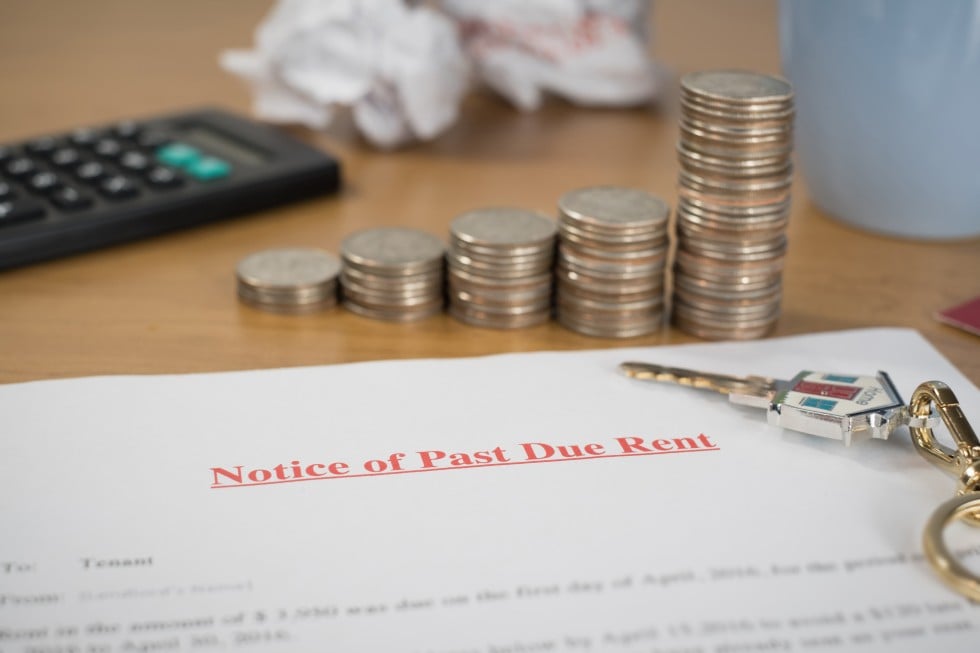In today’s economy, renting an apartment or home is quite common. Nearly 40% of people in the United States are renters, and many of them are facing financial hardship.
If you have lost your job or are experiencing other financial difficulties you may find yourself unable to keep up with payments on your lease. You may even be facing eviction.
What happens to rental debt if you file for bankruptcy? If you’re still living in the home will you be allowed to stay? Rental debt is unsecured debt that can be forgiven through bankruptcy, but before making any decisions read on to learn how the debt is handled in Chapter 7 vs. Chapter 13 bankruptcies.
Can Bankruptcy Stop an Eviction?
If you are behind on rent filing for bankruptcy can delay eviction proceedings, but not for long. The court will issue an automatic stay once you file, which prevents all creditors, including your landlord, from collecting debts you owe until your bankruptcy is complete.
You will have three to four to remain in your home without the threat of eviction, unless your landlord files a motion for automatic stay relief. If the Court grants your landlord automatic stay relief they can resume the eviction process immediately.
Although bankruptcy only temporarily stops eviction proceedings, it can buy you enough time to make a payment plan or get caught up on past due rent.
One exception to the automatic stay is if a judgment of possession or writ of eviction was court-ordered before you filed for bankruptcy. In this case, the automatic stay will not protect you from eviction and the process will carry on uninterrupted. You should consult with an attorney to discuss your options right away.
Rental Debt Under Chapter 7
In a Chapter 7 bankruptcy, the court appoints a trustee to discharge many, if not all, of your debts. The trustee might also sell, or liquidate, some of your property to repay your creditors, but you will likely be able to keep most of your assets while eliminating debt.
Once you file under Chapter 7, the trustee may make the decision whether to reject or assume the lease. In reality, however, most trustees do not get involved in the rejection or assumption of apartment leases.
Absent action by the trustee, you can assume the lease. You will then have 30 days after the date of your bankruptcy filing to deposit the overdue rent with the court clerk. Afterward, you can formally assume the lease, continue to make monthly payments, and remain in possession of the apartment.
If the trustee decides to reject the lease, and you do not assume it, your past-due rent will be discharged, you will not continue paying rent, and the landlord may start or continue eviction proceedings.
Rental Debt Under Chapter 13
If your income exceeds the limit for filing under Chapter 7, you may still file a Chapter 13 bankruptcy, which allows you to reorganize your debt (often for less than you owe) under a 3 to 5 year repayment plan.
Under Chapter 13, you get to decide whether you will assume the lease, pay back rent, and keep your home or reject the lease and move out. If you keep the lease, your rental debt becomes part of your repayment plan. Assuming you can make the payments on time, this solution allows you to stay in your home. If you miss payments, however, your landlord can petition the court to lift the automatic stay and proceed with an eviction.
Contact the Law Office of Levitt & Slafkes Today For a Free Consultation
A skilled bankruptcy lawyer can help you decide how to handle your rental debt and determine whether filing a Chapter 7 or Chapter 13 bankruptcy is right for you. Levitt & Slafkes has over 30 years of experience helping people like you understand your options.
For a FREE consultation, call 973-323-2953 or Contact Us Online today.
We are proudly designated as a debt relief agency by an Act of Congress. We have proudly assisted consumers in filing for Bankruptcy Relief for over 30 years. The information on this website and blogs is for general information purposes only. Nothing should be taken as legal advice for any individual case or situation.



